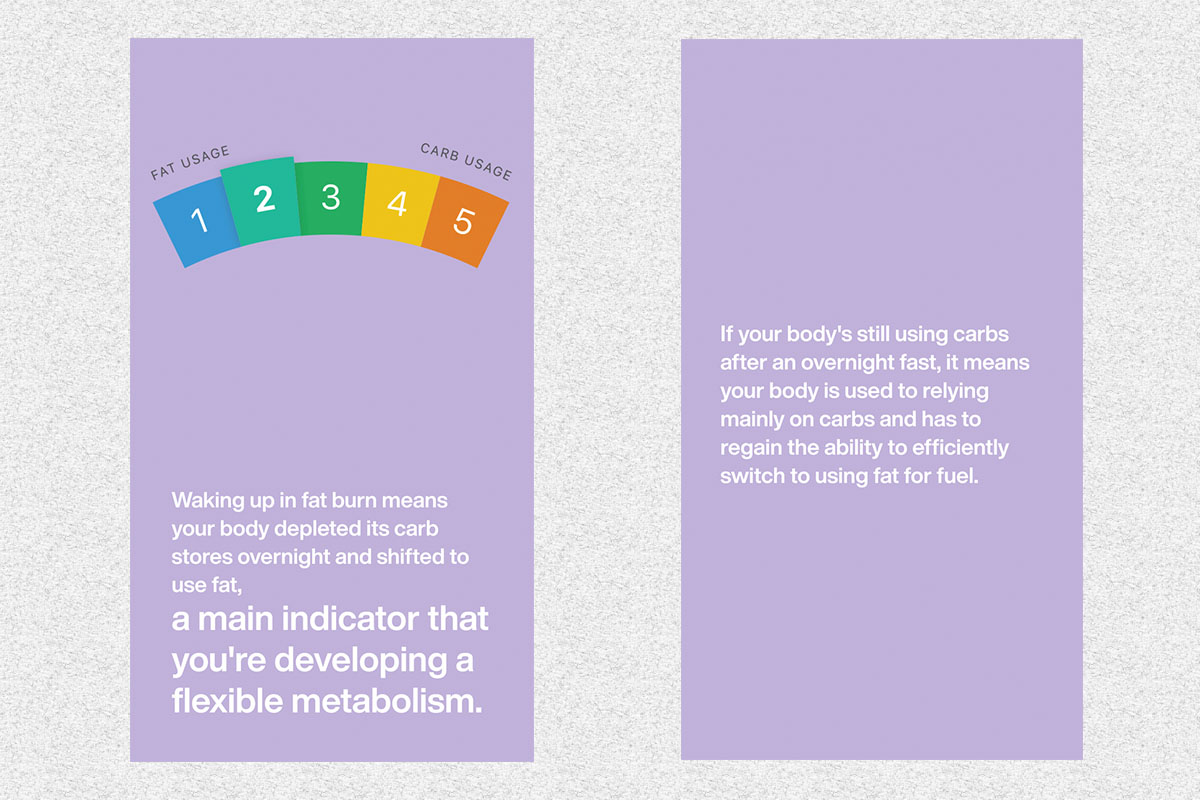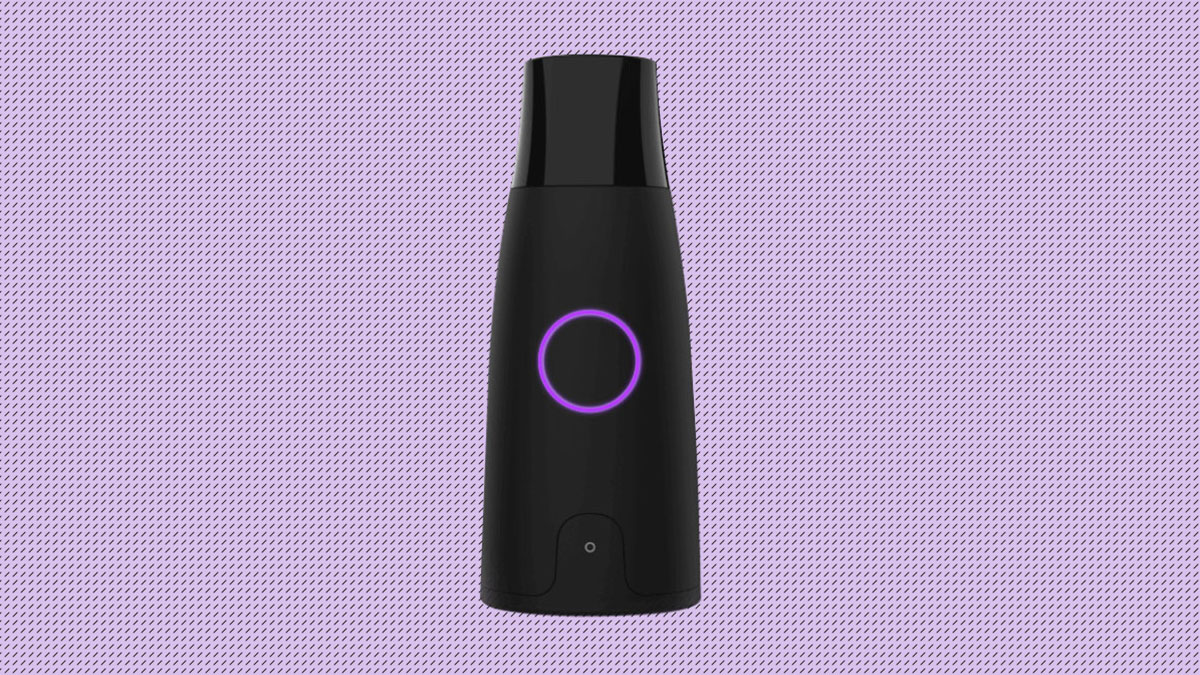We’re used to speaking colloquially about the speed of metabolisms. As in: so-an-so can eat whatever he wants because he has a fast metabolism. These personal perceptions are blindly accepted as relevant to nutritional choices, workout regimens and general weight loss strategies.
But as Harvard Health Publishing points out, that speed or lack thereof (expressed through one’s basal metabolic rate), is largely genetic. There isn’t much you can do about your resting metabolism, and if you’re hoping to lose weight, attempts to speed up your metabolism through stringent dieting or excessive exercise often turn out to be self-defeating.
It might help to associate your metabolism with a different quality: flexibility. Excuse the overused automotive analogy, but today’s most efficient cars don’t rely entirely on petrol. They plug into charging stations, and they can run on biodiesel or ethanol. Your body should always be ready and willing to make use of whatever fuel’s available to it, which, ideally, would include fat in addition to carbohydrates.
The standard American diet (academically abbreviated to SAD, too real) is high in “red meat, high-fat dairy products, processed and fast foods, refined carbohydrates, added sugars, salt and calories.” A lot of crap, basically, and the body gets used to burning it. But a metabolic flexibility eliminates carbs sparingly, at times throughout the day where it makes the most sense, and at other times, fat.
This is more or less the scientific philosophy behind Lumen, a popular measuring device that I’ve been testing for a few weeks now. It bills itself as “the world’s first portable device to measure and track metabolism,” and commands a small army of cheery online influencers, all determined to spread the gospel of metabolic flexibility.
Lumen claims consistent use of its little handheld will encourage weight loss, even out blood sugar charts, boost energy levels and cure your late night snacking affliction. That all sounds fantastic. But does it actually work?

How Lumen Works
Lumen was founded back in 2016 by a pair of overachieving twin sisters: Michal and Merav Mor, Israeli physiology PhDs who moonlight as triathletes. The product has often been compared to a vape or breathalyzer because A) that’s exactly what it looks like, and B) the primary mode of use involves deep inhales and exhales through the device. Historically, if you wanted to get a reading on your metabolic flexibility, you’d need to have your respiratory exchange ratio (RER) tested at a clinic. In the style of other fitness wearables, though, Lumen’s mission is to make these readings accessible and familiar — the sort of figures you’ll check in on frequently throughout the week, like sleep metrics or steps, and actually understand what patterns you’re supposed to be looking for.
In order to log a reading, you open up the Lumen app on your phone (the device connects via Bluetooth) and select “Measure your metabolism.” The screen will prompt you to sit down and lean back, to ensure your breathing isn’t labored, then walk you through a somewhat annoying, albeit aesthetically pleasing process. You inhale until a ring on the screen turns green, hold for 10 seconds, then exhale steady and sharp, using all that blowing to make sure a “ball” stays in the very center of a spectrum at the bottom of the screen. If you mess up during any portion of this process, Lumen will make you try it all over again. And even if you hit everything to a tee, it’ll likely ask for a secondary reading anyway.
What Does Lumen Measure?
What is it measuring, exactly? The concentration of CO2 in your breath. While an RER test produces a ratio between the amount of carbon dioxide produced in metabolism and the oxygen used (where a higher ratio indicates the body is relying on carbohydrates for energy), a preponderance of CO2 will score a “4” or “5” on Lumen’s proprietary software. A “1” or “2,” meanwhile, indicates that you’re burning fat, while a “3” is a balanced mixture of the two. The name of the game isn’t to always hang out in the 1 or 2 zones and burn fat, but to be filtering between various zones depending on what your body should preferably be burning in specific situations throughout the day.
For instance: when you wake up, you want to be in fat burn. Remember, sleep was a natural form of intermittent fasting, or “calorie restriction” before hardos started branding the term on YouTube. Assuming you’re getting at least seven hours of sleep each night, and didn’t eat a bowl of pasta or cookies directly before you conked out, you’re giving your metabolism as opportunity to shift into fat-burning mode. If either opposite is true, or if you eat such a processed, high-glycemic diet that your body now has trouble accessing fat burn, you might wake up to a a 4 or 5.
At another point in the day, though, any score from 3 to 5 could be a good thing, and especially if you’re about to work out. Lumen encourages its users to take multiple reading throughout the day — upon waking up, before and after meals, before and after exercise, just before bed, etc. I find dedicating that much time to the device a bit much, but when used deliberately, it can corroborate or question your understanding of your body before an important activity. Yesterday, before heading into an hour lift, I wanted to make sure I had enough energy. I scored a 3 on Lumen, which delivered the following message: “You’re burning both carbs and fat…there’s no need to fuel up.”
Is It Worth Your Time (or Money)?
For those who consider themselves well attuned to their physiological rhythms, Lumen might feel superfluous. This is a bit ironic, considering expensive personal fitness platforms tend to appeal most to a self-actualizing clientele. In other words: healthy people want to get healthier. But do they need Lumen to tell them how healthy they are? Once they get the “gist” of how to hack their bodies, will the bother breathing into the device four times a day? It’s especially relevant considering Lumen takes a month or more to really get going — once the app collects enough information on you, it officially determines your metabolic flexibility (a score out of 21), and begins recommending exact foods and times to prioritize them, in an ongoing effort to balance your fuel sources.
Lumen does an excellent job here of embracing “intuitive eating.” Instead of demonizing foods (think local news channels updating viewers on whether carbs are “in” or “out”) the service defines them. It’ll recommend a fast absorption carb when you need a boost (cornflakes), or slow absorption carbs as dinner mainstays (quinoa, beans, sourdough bread). You could access all of this information online, obviously, but with Lumen, you can see how the ideas affect your body in real time.
This sort of guidance can be a real game changer for someone who keeps sampling diets and never feels like he’s making any progress, but for a self-identifying “healthy” person, too, paying extra attention to your metabolic flexibility is going to have a tangible impact on daily decision-making. It’s one thing to feel the impact of a midnight snack in your stomach; it’s another to see it spelled out on a screen.
The number one goal of getting a Lumen probably shouldn’t be to lose weight — “information gathering” is a better prescription — but when you teach your body to burn fat again, yes, the weight is going to come off. More importantly, though, your insulin sensitivity’s going to improve (the glucose is going where it needs to!), your risk of diabetes is going to plummet and you’ll avoid the blood sugar spikes that can unseat an entire day. Bad dietary decisions often lead to worse dietary decisions. And feeling too tired to exercise. And waking up tired. It’s a punishing cycle.
But the opposite is true, too. It’s a little easier to stop eating based on mood … when you’re not in a bad mood. Some of the online marketing around Lumen is a little over the top; you’ll see influencers anointing Lumen as the solution to all your worldly problems. It isn’t, of course. But it will give you the reins to see some of your afternoon woes and mysteries for what they are — bodily reactions that you actually impact, no matter how many times you’ve been led to believe that metabolism was beyond your control.
The Charge will help you move better, think clearer and stay in the game longer. Subscribe to our wellness newsletter today.


















